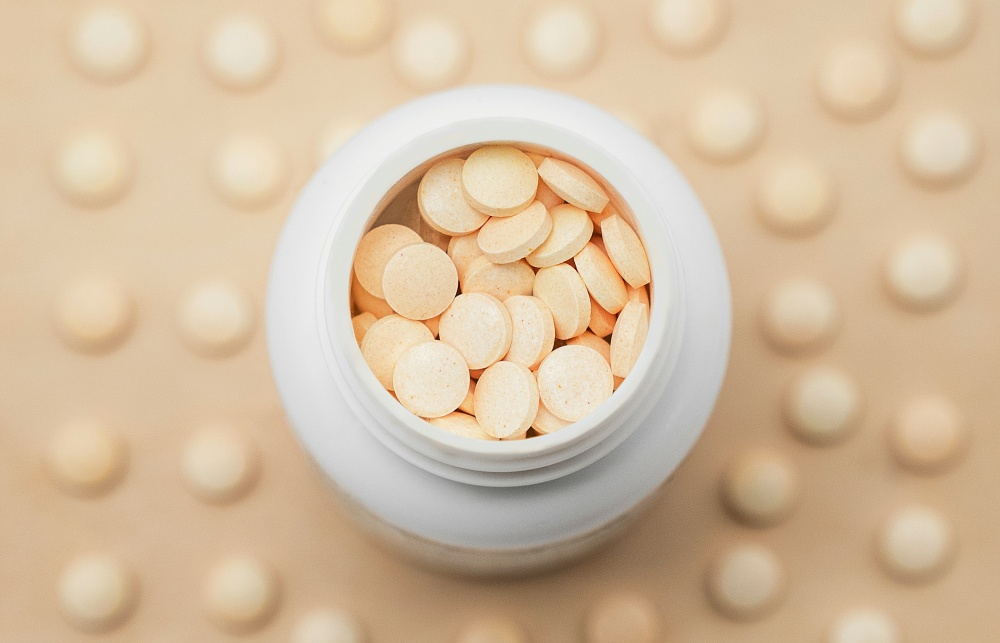The supplement market is saturated with products promising various health and beauty benefits, and navigating it can be overwhelming. Among these, L-cysteine, an amino acid and a precursor to glutathione, is emerging as a noteworthy ingredient in skincare.
As we age, concerns about dark spots, including freckles and age spots, often increase. These spots, though varying slightly, share a common link to excessive melanin production. Interestingly, research suggests that L-cysteine may influence the melanin production process, potentially contributing to a reduction in blemishes.
Understanding L-Cysteine and Its Skin Benefits
But first, before you consider adding an L-cysteine supplement to your daily routine, what exactly is it, and why is it attracting attention in skincare discussions?
L-cysteine is an amino acid naturally found throughout the human body. Its significance for skin health is largely tied to its role as a precursor to glutathione, one of the body’s most potent antioxidants.
Glutathione plays a crucial part in neutralising harmful free radicals, reducing oxidative stress, and aiding the body’s detoxification processes, all of which contribute to healthier skin. While glutathione supplements are often marketed for skin brightening, their oral bioavailability is limited, meaning they aren’t easily absorbed.
This is where L-cysteine becomes essential; it helps the body produce glutathione more effectively, providing a more efficient way to boost this vital antioxidant.
How L-Cysteine Works to Brighten Your Complexion
L-cysteine supports skin health by contributing to glutathione production, an antioxidant that may protect the skin from oxidative stress and environmental factors. By increasing glutathione levels, L-cysteine can influence the appearance of dark spots and promote skin clarity. This process also aids in the body’s detoxification, potentially enhancing skin clarity. Furthermore, L-cysteine plays a role in skin cell repair, which can contribute to a healthier, more radiant complexion.
- Reduction of Hyperpigmentation: L-cysteine increases glutathione, which may help fade the appearance of dark spots.
- Combating Oxidative Stress and Supporting Skin Cell Regeneration: As a glutathione precursor, L-cysteine may neutralise free radicals, supporting the skin’s detoxification process and aiding in skin cell repair. This process can contribute to a healthier, more radiant complexion.
- Improving Skin Tone, Clarity, and Overall Radiance: Through its influence on glutathione production and support of cell repair, L-cysteine can affect skin tone and clarity. The support of the body’s detox processes, also from glutathione, can contribute to enhanced skin clarity.
L-Cysteine vs. Other Popular Skin Brightening Agents

Various ingredients are used in skin brightening products, and L-cysteine’s approach differs due to its support of the body’s natural antioxidant systems. Here is a comparison with other common agents:
L-Cysteine vs. Vitamin C
Vitamin C is recognised for its antioxidant properties, which can influence melanin production and support collagen. Similar to L-cysteine, vitamin C, as found in some Japanese vitamin C drinks, affects collagen production, potentially improving skin texture. However, vitamin C may also cause irritation, especially for those with sensitive skin. On the flip side, L-cysteine is generally considered more tolerable for such individuals.
L-Cysteine vs. Niacinamide
Niacinamide, also known as Vitamin B3, influences melanin transfer to the skin’s surface and strengthens the skin barrier, which can be beneficial for sensitive or acne-prone skin. While niacinamide works to affect pigmentation, L-cysteine’s approach involves supporting glutathione production, which has a skin-lightening efficacy in humans.
L-Cysteine vs. Kojic Acid
Kojic acid and L-cysteine both influence tyrosinase. However, kojic acid is typically less stable and may cause irritation at higher concentrations. L-cysteine, on the other hand, by supporting glutathione production, works alongside the body’s natural processes to influence pigmentation, potentially without the irritation associated with direct topical tyrosinase inhibitors like kojic acid.
The Antioxidant Power of L-Cysteine for Skin Health
Antioxidants are relevant in skincare due to their role in addressing oxidative stress from environmental factors. And as mentioned, L-cysteine’s support of glutathione production makes it a factor in neutralising free radicals, which can influence skin appearance.
How L-Cysteine Fights Oxidative Stress
L-cysteine’s influence on oxidative stress involves its support of glutathione production, an antioxidant that addresses free radicals. Free radicals, which can arise from factors like UV radiation and pollution, may contribute to cellular changes. L-cysteine’s role in glutathione production can help ensure an adequate supply of this antioxidant, which interacts with free radicals. This interaction may support skin health and influence the appearance of inflammation.
Here is how L-cysteine interacts with oxidative stress:
- Neutralising Free Radicals: L-cysteine, via glutathione production, influences free radicals.
- Protecting Collagen: By its influence on oxidative stress, L-cysteine may help protect collagen.
- Reducing Inflammation: It may influence inflammatory responses linked to oxidative changes.
- Influencing Skin Appearance: L-cysteine’s support in protecting the skin from environmental factors may influence the appearance of fine lines and pigmentation.
Incorporating L-Cysteine into Your Skincare Regimen
So, how do you incorporate L-cysteine into a skincare routine?
L-cysteine can be included through supplements or products containing this ingredient. Since it supports glutathione production, combining it with topical treatments addressing pigmentation may provide results.
How to Use L-Cysteine for Skin Brightening
- Supplementation: Consider L-cysteine supplements that support glutathione production. Sato Pharmaceutical offers products like Hakubi B, which includes L-cysteine and other ingredients. This Japanese skincare product range includes supplements that support skin health. L-cysteine can influence skin metabolism and melanin. Vitamins B2 and B6, and coix seed extract are also included to help influence sebum secretion and maintain skin health and support moist and supple skin.
- Pairing with Brightening Serums: Combining L-cysteine supplements with serums containing other brightening ingredients may provide added benefits.
- Consistent Daily Use: Consistent daily use is often suggested for those exploring the potential effects of L-cysteine. It is important to note that results may take time.
If you are exploring options for skin brightening and are unsure how much NAC (N-acetylcysteine, a form of L-cysteine) to take for skin lightening, or if you are interested in learning more about Japanese skin whitening products, it is always advisable to consult with a healthcare professional or a dermatologist.





